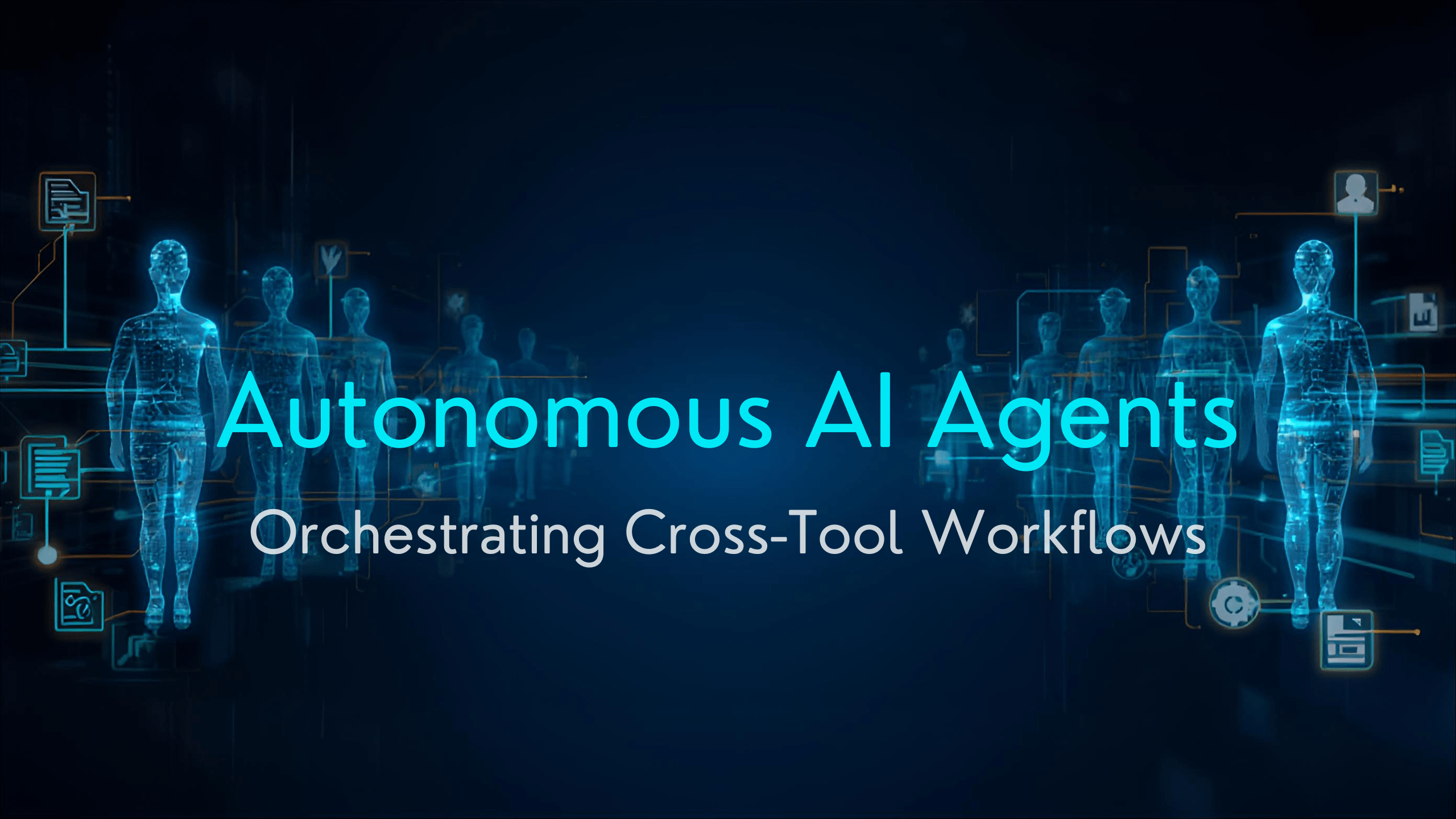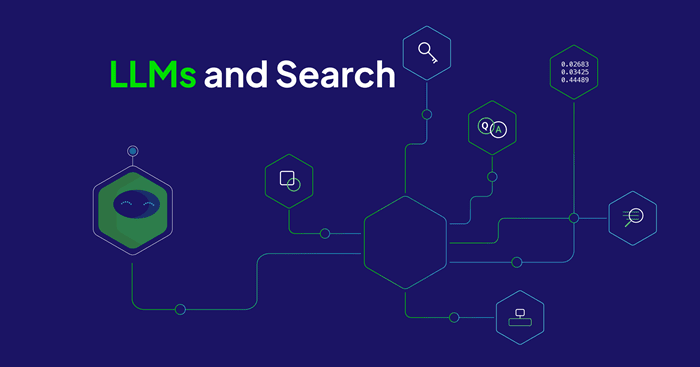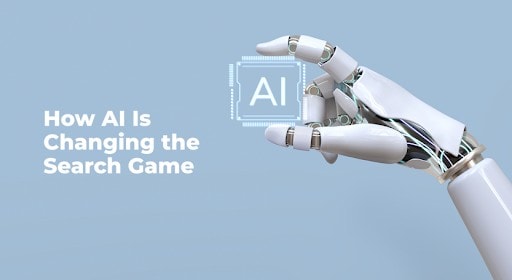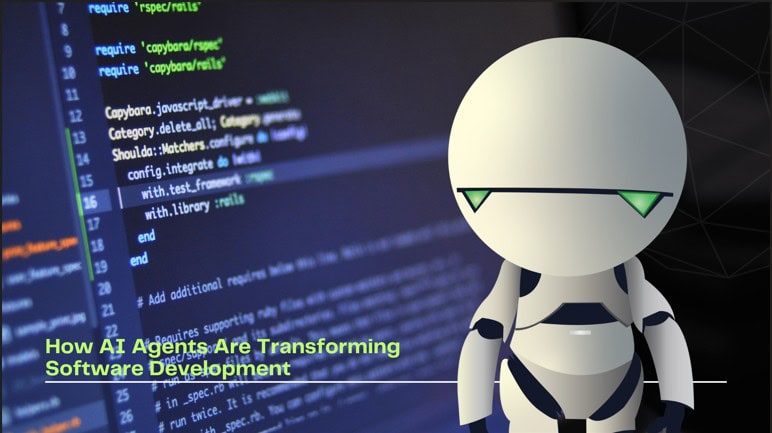The online marketing space is changing fast, and AI agents are leading this change. AI-based tools are revolutionizing content creation, search engine optimization, social media management, and ad targeting, allowing companies to work smarter and get improved outcomes.
Whether by automating boring tasks or using predictive analysis for better decision-making, AI is turning out to be a game-changer.
This article looks at how AI agents are revolutionizing digital marketing, which AI-powered technologies are leading the charge, and what the implications are for businesses that want to expand their online presence.
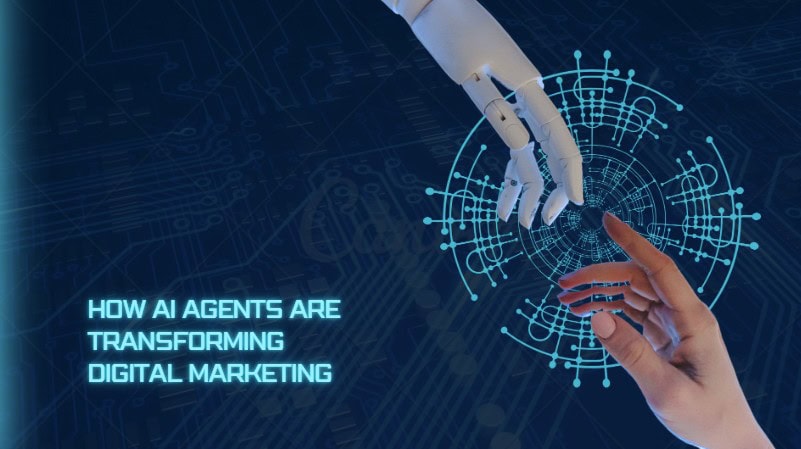
What are AI agents?
AI agents are software designed to interact with data and perform action independently in an attempt to achieve set objectives. It acts like a virtual assistant, collecting information, making decisions, and taking actions without the need for human direct intervention.
AI agents solve problems by:
- Looking at the problem.
- Breaking it into components.
- Building a step-by-step solution.
- Performing these steps.
They next examine the output, refine the solution as necessary, and repeat the cycle until they have achieved the desired output.
AI agents work best at solving complex, dynamic, and recursive problems since they act on many systems and respond to user requests (e.g., wishes or instructions) in order to do their job.
For instance, an AI agent might be able to automatically book a flight ticket under given conditions.
In terms of marketing, AI agents can pick up user intent signals and information in order to assist you in delivering customized experiences to your public.
You can also read: Effective SEO Strategy For The Age of AI-Powered Search
AI agents can be utilized for planning trips and itineraries too. These are some of the numerous ways through which AI agents can improve your marketing.
The Rise of AI Agents in Digital Marketing
AI agents are software programs that learn, reason, and make decisions to enhance marketing efforts. The agents utilize machine learning, NLP (natural language processing), and deep learning to sort through vast data sets and automate segments of digital marketing.
Businesses leveraging AI agents benefit from:
- Increased Efficiency: Automating repetitive tasks saves time and money.
- Data-Driven Insights: AI analyzes consumer behavior to optimize marketing strategies.
- Personalization at Scale: AI personalizes content and interactions to target audiences.
- Improved ROI: Intelligent automation reduces costs while maximizing engagement and conversion.
What is the agentic framework?
The agentic framework is a conceptual model or architecture for developing and understanding AI agents. For example, open-source platforms like Lang Graph enable developers to create intelligent agents that can understand commands and make decisions on their own.
An AI platform manages the allocation of necessary computing and memory resources to allow agents to perform their tasks efficiently.
Each user interaction with an agent (application) initiates a conversation (or thread), which can persist over long periods of time.
In these conversations, the agent needs to preserve context (using memory and state management) in order to give meaningful replies. Agent frameworks preserve these contexts on their own, even if several conversations are taking place at the same time.
These frameworks also allow each agent’s operation and functionality to be monitored. They provide control over their actions, with the ability to start, halt, or change behavior as required.
For these reasons, the selection of the proper AI framework is necessary to provide consistent, high-performance scalability, especially in serving thousands of users concurrently.
Let’s explore the key areas where AI-powered tools are making an impact.
1. AI Agents for Content Creation
Content is the backbone of online marketing, and AI is helping create content as never before. AI tools are creating well-structured blog articles, social media descriptions, and even video scriptwriting based on user inputs and industry trends.
Here are some efficient AI content-generation tools:
- ChatGPT & Jasper AI: Create human-readable articles, blog posts, and ad copies.
- Copy.ai & Writesonic: Create viral headings, email copies, and social media posts.
- Synthesia & Pictory: Turn text into AI-generated videos with photorealistic avatars.
Using AI content tools can ensure consistency, SEO ranking can be enhanced, and content marketing can also be scaled with ease.
You can also read: Autonomous AI Agents Orchestrating Cross-Tool Workflows
2. AI-Powered SEO Optimization
Search engine optimization (SEO) is key to visibility, and AI is revolutionizing the way companies rank in search engines. AI SEO solution software examines search patterns, refines content structure, and even foresees algorithm updates.
Here is a list of AI tools for SEO:
- Surfer SEO & Clearscope: Optimize for readability and relevance with keywords.
- Frase.io & MarketMuse: Produce AI-generated content briefs and optimization reports.
- Semrush & Ahrefs: Apply AI-powered competitor analysis, keyword research, and backlinking.
AI-based SEO techniques allow for higher placement of content in Google, higher organic traffic, and more online authority.
3. AI Agents in Social Media Management
Social media is an important marketing channel, and AI enables brands to post automatically, track audience behavior, and fine-tune engagement strategies.
Here are some AI tools for social media optimization:
- Hootsuite & Buffer: Scheduling and performance tracking through AI.
- Lately.ai: Converts long content into social posts.
- Brandwatch & Sprout Social: AI-based sentiment analysis for audience insight.
AI solutions allow marketers to automate repetitive tasks, tailor interactions, and gain real-time insights into audience engagement, all of which translate into better-performing social media campaigns.
4. AI Agents for Ad Targeting and Marketing Automation
Ad targeting is being revolutionized by AI through the analysis of consumer behavior and real-time optimization of campaigns. Organizations can get the most out of their advertising spend by targeting the right audience through AI-driven analytics and automation.
Some AI Tools for Ad Targeting:
- Google Ads Smart Bidding: Artificial intelligence bidding for increased conversion rate.
- Meta Advantage+: Artificial intelligence ad personalization, and audience segmentation.
- Adzooma & Revealbot: Automate and optimize advertising on numerous channels.
Artificial intelligence agents streamline ad campaigns to make them more effective at saving cost but improving conversion rate via targeted advertising and automated optimizations.
The Future of AI Agents in Digital Marketing
The era of digital marketing is rapidly evolving, and artificial intelligence agents are on the cusp of becoming the central theme, with future advancements expected in:
- Conversational AI & Chatbots: AI-powered chatbots provide real-time customer support.
- Predictive Analytics: AI forecasting trends and consumer behavior.
- Hyper-Personalization: AI delivering tailored experiences at an individual level.
- Voice Search & AI Assistants: Optimizing content for voice search queries.
Businesses that embrace AI agents will stay ahead of the competition, benefiting from data-driven insights, automation, and improved customer engagement.
You can also read: What Is SearchGPT: The New Search Engine
The direction is shifting toward agents that are powerful in reasoning and that can make efficient actions on behalf of the user, as highlighted by Sundar Pichai at this year’s Google I/O. This revolution in technology provides a huge potential for marketers.
By leveraging AI agents and the agentic model, businesses can free themselves from routine and predictable work, allowing valuable resources to focus on strategy and creativity.
These agents are not just tools for efficiency; they are a fundamental transformation in how brands interact with customers, deliver personalized experiences, and drive growth.
The rise of AI-powered marketing emphasizes the need for organizations to innovate and transform in order to remain ahead in a rapidly changing and agent-driven digital economy.
In the coming years, adopting these developments will be the most significant means of unleashing new levels of marketing potential and customer engagement.
AI Agents for Digital Marketing
AI agents are autonomous systems that perform marketing tasks with minimal human input. They use data, predictive analytics, and natural language understanding to execute actions such as audience targeting, content creation, ad optimization, and customer support.
Unlike basic automation tools, AI agents operate with intent. They can interpret campaign goals, test variations, and adjust strategies dynamically based on what’s working.
How AI Agents Improve Marketing Performance
-
Personalized Customer Experiences: AI agents analyze user behavior and predict what customers are likely to engage with next. This leads to more relevant recommendations, personalized ads, and higher conversion rates. Predictive personalization powered by AI agents helps you connect with each visitor as an individual, not a demographic.
-
Smarter Ad Spend: Traditional campaigns often rely on trial and error. AI agents analyze performance data in real time, pausing underperforming ads and reallocating budget to high-performing segments. The result is higher ROI and reduced wasted spend.
-
Content and SEO Automation: AI agents assist in keyword research, topic clustering, and content optimization. They identify trending topics before competitors do and generate SEO-friendly content outlines based on real-time search intent. This allows marketing teams to scale content production without losing quality.
-
24/7 Engagement and Support: AI agents can manage customer inquiries, follow-ups, and lead qualification round the clock. Through chatbots and conversational AI, brands can engage prospects instantly, improving response time and customer satisfaction.
-
Predictive Analytics and Decision Support: By analyzing past campaigns and market trends, AI agents forecast future performance. They recommend when to launch, which channels to focus on, and what tone of message converts best. This predictive layer turns marketing from reactive to proactive.
Real-World Impact
A retail brand using AI agents for ad optimization can automatically test thousands of ad combinations in a day, identifying the most profitable audiences in hours instead of weeks. A digital agency deploying AI agents for SEO can analyze competitor keywords, create optimized blog drafts, and schedule posts without manual input.
The Human Role Still Matters
AI agents don’t replace human marketers; they enhance us. Humans set goals, provide creative direction, and interpret context. AI handles the repetitive work, pattern recognition, and decision support. The best results come when humans and AI collaborate.
AI agents are the next step in marketing evolution. They make campaigns faster, smarter, and more adaptive. Businesses that adopt AI-driven marketing early will lead in efficiency and customer satisfaction.
Conclusion
AI agents are transforming the digital marketing industry by providing businesses with intelligent automation, improved SEO strategies, ad targeting optimization, and improved social media management. With the improvement of technology for AI, digital marketers have to change their ways to harness its power.
Investment in AI-powered marketing software will allow businesses to grow successfully, improve interaction, and drive more significant conversions. The digital marketing future is AI-powered, and businesses embracing AI agents will be in front in a future that is fast turning digital.
If you’re ready to integrate AI agents into your marketing strategy, CamRojud can help design and deploy intelligent systems that automate your workflows and maximize performance.
![]()







